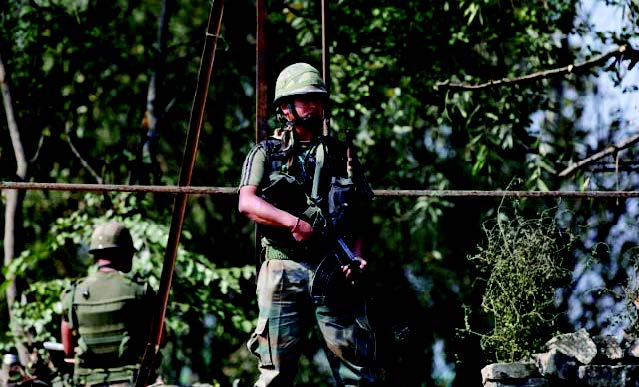After running through a variety of non-military responses to the September 18 terrorist strike at an Army camp in Uri, the Centre on Thursday announced that Indian forces had carried out “surgical strikes” across the Line of Control. With this, India‘s next steps, post-Uri, are in uncharted terrain, with New Delhi abandoning the self-proclaimed policy of “strategic restraint” adopted in the face of earlier provocations by terrorists believed to be backed by Pakistan. The operation, that began and concluded in the early hours of Thursday, was claimed to be a military success, with no injuries to the Indian para-commandos who went across the LoC into Pakistan-occupied Kashmir to attack several locations. The decision to strike in this manner was evidently taken after specific intelligence that terrorist groups were planning attacks in India. This may not be the first time India has undertaken quick cross-LoC operations, but it has never before chosen to share information so publicly.
The terms “surgical strike” and “pre-emptive strike” used by the Centre were intended to convey that this was not an attack on Pakistan’s defense forces, but a targeted action against terrorists poised to wreak damage in India. Pakistan of course has played down the Indian operation, characterizing it as an act of habitual cross-border shelling. It is welcome that New Delhi declared the strikes complete shortly after the operation, with the DGMO calling his Pakistani counterpart to convey that India would not escalate the conflict beyond this. This, along with the briefings held in New Delhi for envoys of various countries, indicates that the Centre wants to end hostilities with Pakistan for the moment. This strengthens the view that the operation was the result of pressure on the Modi government to manufacture a strong response to Uri. Over the past few days there has been a cascade of moves to underline that such provocations cannot be followed with business as usual. The government reviewed the working of the Indus Waters Treaty, declared it is flirting with the idea of reviewing Pakistan’s Most Favored Nation status, and pulled out of the SAARC heads’ meet to be held in Islamabad. Having made it known that India does not want further escalation, even as people living along the International Border and the LoC are shifted to safer locations, the Centre will need to articulate what it regards as the new normal – and indeed, how it hopes, or plans, to dissuade Pakistan from escalating the situation in turn.
